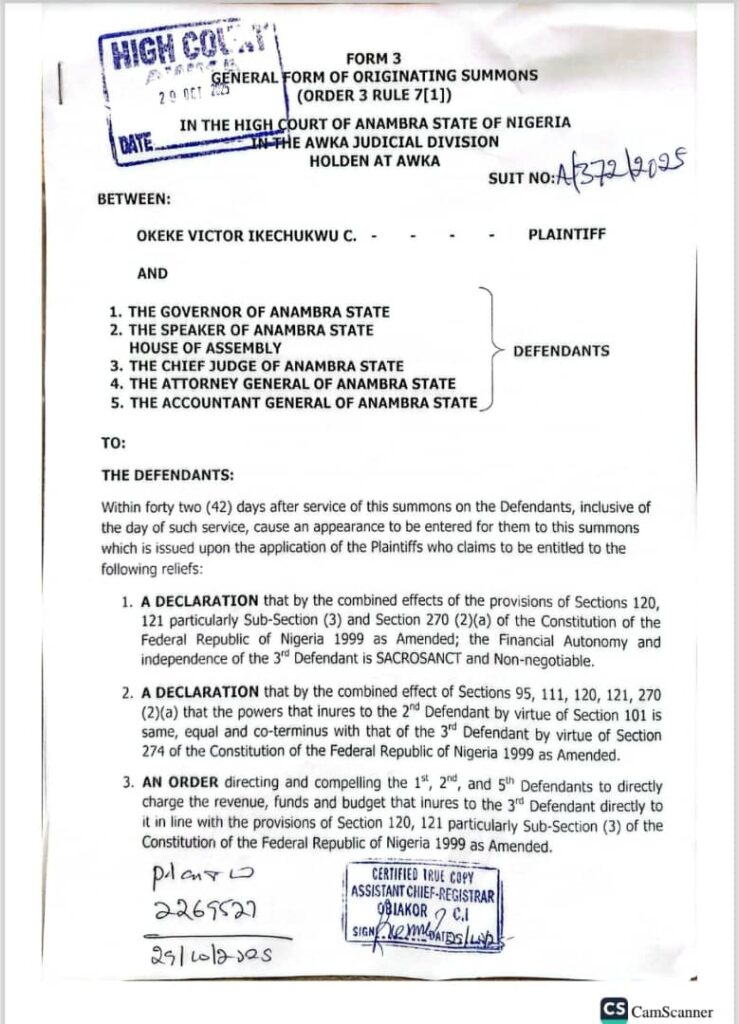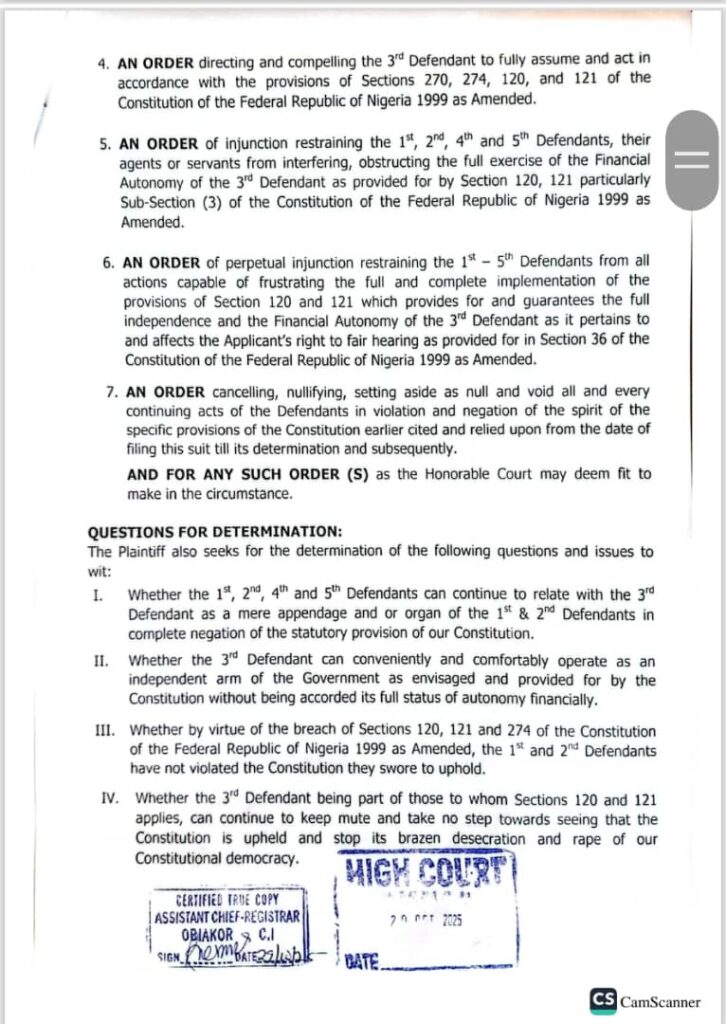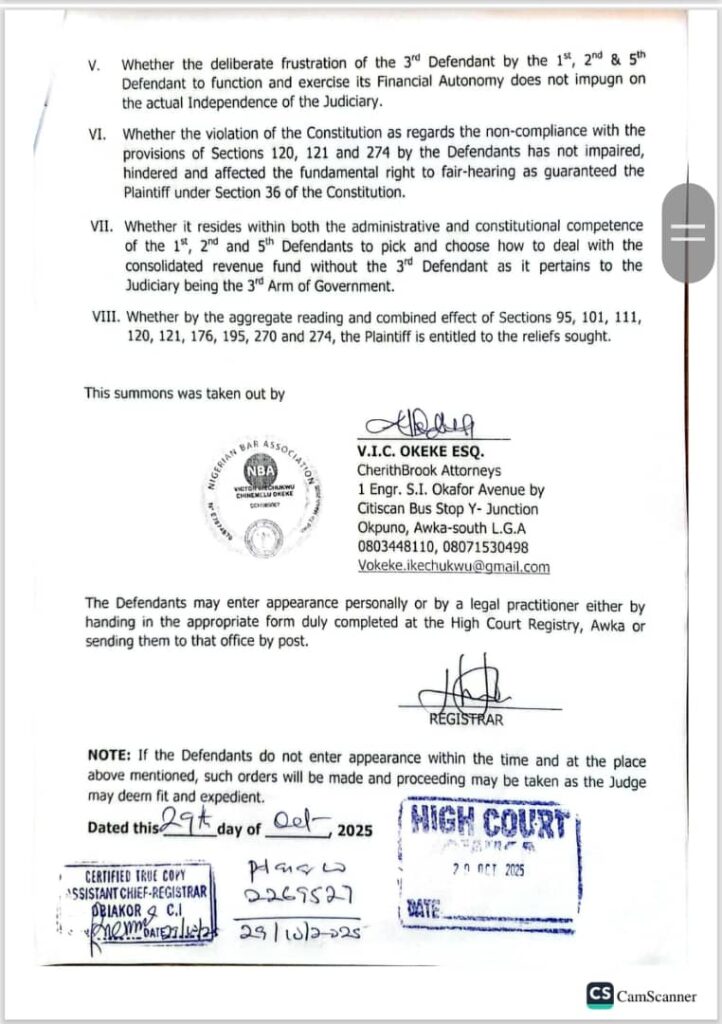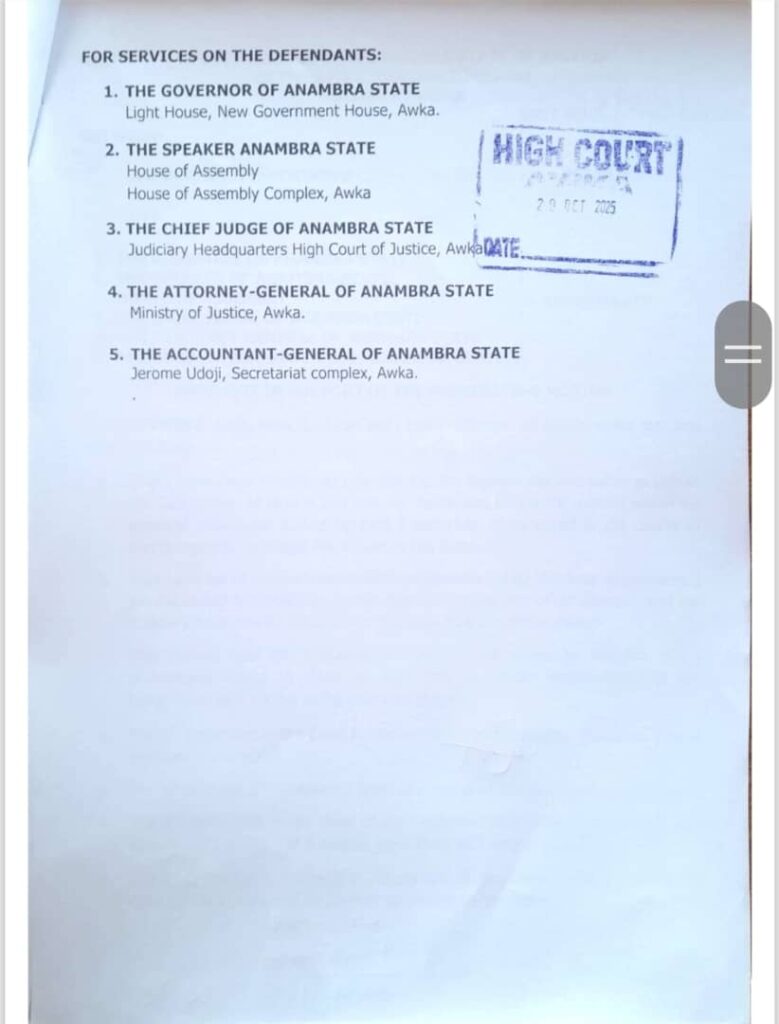A constitutional confrontation is unfolding in Anambra State as a citizen, Okeke Victor Ikechukwu, has filed a suit accusing the state’s top officials of systematically eroding the judiciary’s financial independence in violation of the 1999 Constitution.
The suit, lodged before the High Court of Anambra State, Awka Judicial Division, names the Governor, the Speaker of the House of Assembly, the Chief Judge, and the Accountant-General as defendants.
The claimant alleged that successive administrations have continued to treat the judiciary as “an appendage” of the executive and legislature, a practice he argued directly contradicts constitutional guarantees.
Court filings seen by Aproko Republic indicate that the defendants have been served and are expected to enter appearance within the statutory period prescribed under the state’s civil procedure rules.
Sweeping Reliefs Sought
The originating summons seeks far-reaching declarations and mandatory orders, including:
A judicial affirmation that Sections 120, 121(3) and 270(2)(a) make judicial financial autonomy “sacrosanct and non-negotiable” and that the defendants have unlawfully undermined these provisions.
A declaration equating the constitutional powers of the Speaker under Section 101 with those of the Chief Judge under Section 274, underscoring institutional parity among the three arms of government.
An order compelling the Governor, Speaker and Accountant-General to remit all judiciary allocations directly to the Chief Judge, as expressly required by Section 121(3).
A directive mandating the Chief Judge to assert and operationalise judicial autonomy in line with Sections 270, 274, 120 and 121.
Injunctions restraining the defendants from interfering with or obstructing the judiciary’s financial control.
Nullification of any actions previously taken in breach of the cited constitutional provisions.
The claimant also requests any further orders the court may consider appropriate.
Key Questions Before the Court
To shape judicial interpretation, the suit poses four central questions:
1. Whether the defendants can continue to relate with the judiciary as an appendage of the executive and legislature.
2. Whether the judiciary can function independently without financial autonomy.
3. Whether alleged breaches of Sections 120, 121 and 274 amount to constitutional violations by the Governor and Speaker.
4. Whether the judiciary can lawfully remain passive while its autonomy is allegedly being eroded.
A Case with National Implications
The Anambra suit lands amid ongoing controversy over the implementation of Section 121(3), which mandates direct funding of state courts. Implementation across Nigeria remains inconsistent.
In 2020, then-President Muhammadu Buhari signed Executive Order 10 to compel compliance, but many states challenged the directive, calling it an unconstitutional encroachment on their fiscal powers.
The Judiciary Staff Union of Nigeria (JUSUN) has repeatedly shut down courts nationwide to protest violations of the constitutional funding model. Several high courts in other states have also issued judgments reinforcing the principle of direct funding to heads of courts.
Legal analysts told Aproko Republic that the Anambra case could become a reference point for state-level judicial autonomy, particularly if the court issues firm orders on budgetary disbursement procedures.






 NEWS2 years ago
NEWS2 years ago
 MUSIC4 years ago
MUSIC4 years ago
 MUSIC4 years ago
MUSIC4 years ago
 MUSIC2 years ago
MUSIC2 years ago





















